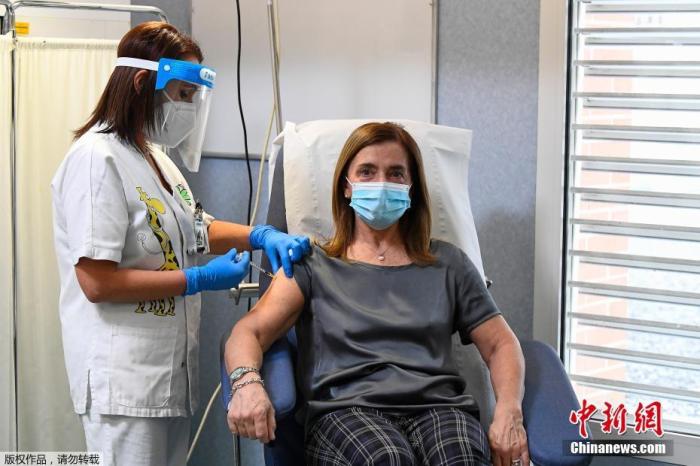Chinanews.com, May 10, according to the US Chinese website, after accusing AstraZeneca of failing to fulfill the initial contract for the new crown vaccine last month, the European Union did not renew the contract with the company that will expire in June.
On December 27, 2020 local time, many member states of the European Union officially launched the new crown vaccination work.
The picture shows a medical staff in Italy doing the new crown vaccination work.
According to Reuters, the European Commission’s internal market chairman Thierry Breton said, “We have not renewed orders after June. We will wait and see.” But he did not deny the possibility of renewing the contract with AstraZeneca.
The European Commission recently announced that it has signed a two-year order for the supply of 1.8 billion doses of new crown vaccine with Pfizer.
Breton expects that the cost of purchasing Pfizer vaccines will be higher than that of AstraZeneca.
Tensions between the EU and AstraZeneca have been going on for several months, after the company said twice that it would not be able to provide the previously promised dose to the EU.
The European Union sued AstraZeneca last month, accusing the company of failing to fulfill its vaccine contract.
AstraZeneca refuted the allegations in the lawsuit in a statement at the time, saying that the company "will deliver nearly 50 million doses of vaccine to European countries by the end of April to meet our expectations."
In addition, several countries in the European Union have previously suspended AstraZeneca vaccination following the discovery of a potential link with rare blood clots.
Last month, the British drug regulatory agency recommended that the use of AstraZeneca’s new crown vaccine be restricted to people over 30 years old.
The European drug regulatory agency said on the 7th that it is reviewing incident reports related to thrombosis.
The European Medicines Agency previously stated that the AstraZeneca vaccine may be related to thrombosis, but most of the cases occurred in women under 60 years of age, and that thrombosis should be listed as an "extremely rare" side effect of the AstraZeneca vaccine.
The agency emphasized that the benefits of vaccinating AstraZeneca still outweigh the risks, so it is recommended to continue to vaccinate adults.

